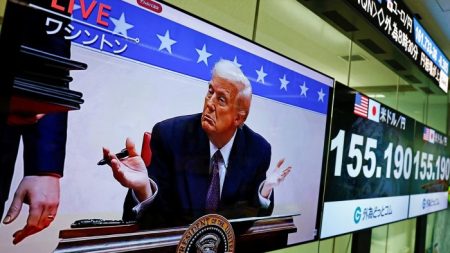The US and the UK on Wednesday announced a fresh package of sanctions against several “financial fixers” who have assisted Russian oligarchs, including Alisher Usmanov, the metals executive, in their attempts to hide their assets.
The latest sanctions come as western allies are broadening the net of individuals and companies around the world — including outside of Russia — who are helping Moscow evade sanctions, prop up its economy and fund its war in Ukraine.
The US Treasury department said Usmanov had “a wide network of businesses in financial safe havens and family members through which to conduct financial transactions, enabling him to potentially circumvent sanctions”. The US crackdown targeted Cypriot, Uzbek and Russian nationals connected to entities stretching from Liechtenstein and Switzerland to the United Arab Emirates.
The US actions came a few hours after the UK blacklisted “those who have knowingly assisted sanctioned Russia oligarchs to hide their assets in complex financial networks”, including two Cypriot nationals who are thought to have assisted Usmanov and Roman Abramovich.
The UK government stated that it was targeting further family members of individuals that it had previously imposed sanctions on — part of an effort to prevent the circumvention of the escalating restrictions imposed since Vladimir Putin’s full-scale invasion of Ukraine in February 2022.
James Cleverly, foreign secretary, said: “We are closing the net on the Russian elite and those who try to help them hide their money for war. There’s no place to hide. We will keep cutting them off from assets they thought were successfully hidden.”
Christodoulos Vassiliades, a Cypriot lawyer, was the target of sanctions for his role providing services to Usmanov. Vassiliades’s formal designation by the UK government also cites his directorship of Sberbank Investments Limited, a Cypriot subsidiary of Sberbank, which is owned by the Russian state and is subject to US, UK and EU sanctions.
Vassiliades’s London office hung up the phone on the Financial Times when approached for comment.
Demetris Ioannides was the subject of sanctions along with the Cypriot firm of which he now serves as managing director, MeritServus HC Limited, for his work in assisting Abramovich, the former owner of Chelsea FC.
According to the Foreign Office, they were responsible for “crafting the murky offshore structures which Abramovich used to hide over £760 million assets ahead of being sanctioned following Putin’s illegal invasion of Ukraine”.
Ioannides’s website credits him with establishing the Cyprus presence of Deloitte, and describes him as chair emeritus of Deloitte Cyprus. MeritServus and Ioannides have been approached for comment.
In addition, the US imposed sanctions on businesses in the UAE, Turkey and China that have helped ship dual-use technology to Russia for the war in Ukraine.
“As the Kremlin seeks ways around the expansive multilateral sanctions and export controls imposed on Russia for its war against Ukraine, the United States and our allies and partners will continue to disrupt evasion schemes that support Putin on the battlefield,” Brian Nelson, the US Treasury under-secretary for terrorism and financial intelligence, said in a statement on Wednesday.
The US also imposed sanctions on the International Investment Bank, a Russia-controlled development bank based in Hungary, saying it “enables Russia to increase its intelligence presence in Europe, opens the door for the Kremlin’s malign influence activities in central Europe and the Western Balkans, and could serve as a mechanism for corruption and illicit finance, including sanctions violations”.
The US ambassador in Budapest, David Pressman, told journalists on Wednesday that the Biden administration had repeatedly asked Prime Minister Viktor Orbán to sever ties with the bank. The Hungarian government retorted by accusing the embassy of launching a “pro-war campaign in Hungary” and vowed to “resist any kind of allied, diplomatic, or even friendly pressure”.
Additional reporting by Marton Dunai in Budapest
Read the full article here
















